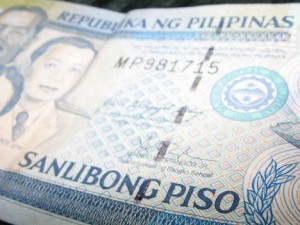Portfolio fund inflow to rise

HSBC expects foreign portfolio investments to rise in 2013 as investors ride on the consensus that the Philippines will get an investment grade rating this year.
MANILA, Philippines—HSBC expects foreign portfolio investments to rise in 2013 as investors ride on the consensus that the Philippines will get an investment grade rating this year.
According to the bank’s chief executive for the Philippines, central banks in developed economies were expected to continue implementing stimulus measures. Part of the liquidity to be injected by monetary authorities abroad would then go to highly attractive emerging markets like the Philippines.
“The additional money will find its way to economies that have sound economic fundamentals and are headed toward investment grade,” HSBC country manager Jose Arnulfo Veloso said at the sidelines of the annual reception for bankers hosted by the Bangko Sentral ng Pilipinas.
He said the Philippines was among the top candidates for portfolio investments given expectations among market players that the country would finally be given an investment grade rating before yearend.
“The Philippines may already get an investment grade by the fourth quarter,” Veloso said.
When that happens, he said, demand for peso-denominated securities would rise. He said corporate entities in the Philippines stood to benefit as they would find it easier to sell their bonds and stocks.
Although the Philippines last year enjoyed a significant inflow of foreign portfolio investments, the country continued to lag behind most of its neighbors in terms of attracting foreign direct investments (FDIs).
Veloso said, however, that rising portfolio money would help fund expansion and investment plans of local companies. The slack in FDIs could be offset by a likely increase in investments by domestic firms resulting from higher demand for their stocks and bonds.
In 2012, gross inflow of foreign portfolio investments reached $18.46 billion, the highest in a decade. The amount was also up 12 percent from $16.47 billion in 2011.
Net inflow, however, fell 5 percent to $3.88 billion from $4.1 billion. The increase in outflow of foreign portfolio investments, the central bank said, was driven by moves of local investors to purchase foreign currency-denominated securities.
Veloso said that as foreign portfolio investments were seen to rise further this year, banks and other fund managers in the country should be up to the task of exercising prudence and intelligence in making investment decisions for their clients.
He said that given the nature of portfolio investments, the money should be invested wisely to avoid significant capital flight that could cause volatility in the country’s financial markets.
“As more liquidity comes in, banks should prepare to ensure these capital flows are invested in proper assets and are managed accordingly,” Veloso said.
